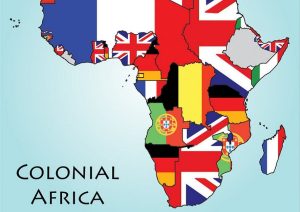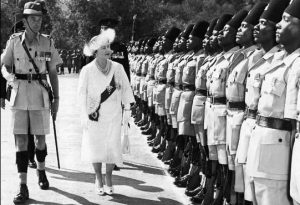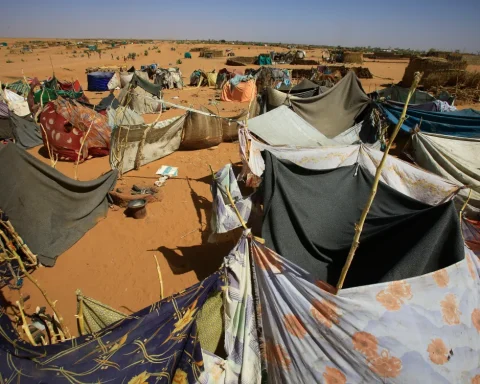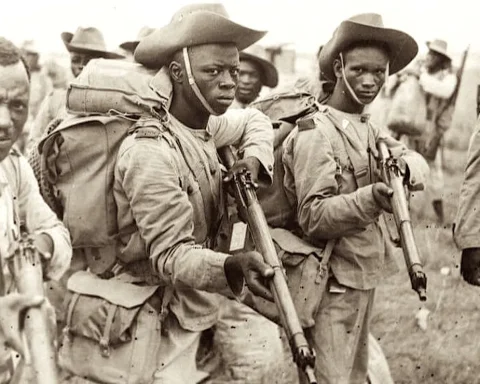
There have been arguments that suggest the independence of African nations from European imperialism atones for the gracelessness of the colonial endeavor. The idea that setting a people free from your unfair authority imposition somehow absolves one of the sinful nature of such uncalled subjugation.
The Berlin conference of 1884, a league of European nations hungry for the imperial endeavor, sat in Berlin, the capital of Germany and partitioned African lands, her resources, people, and culture amongst themselves as unsuspecting participants to their imperial lust.
This saw a massive scramble between these European powers in the African continent to gather resources – which not only consist of natural or mineral resources but also people, commodified, unwilling objects of trade sorely for the satisfaction of European authorities in their mad quest for power and wealth.
The trans-Atlantic slave trade, the carnage of Leopold’s enterprise in the Congo Basin, and the incessant dehumanization of the African people used as pets, zoo animals in faraway European nations, or slave hands squeezed of every life until they have produced the last ounce of resources their blood and land can afford, these were all ensuing consequence of this despicable European imperialism into the African continent.
To this very day, the effects this colonial enterprise is still felt throughout the African continent – culturally, socially, economically, psychologically, and otherwise.
Here are the reasons why European nations need to pay reparations to Africans:
- The colonialism continues to this day:
 In 1958, when Sékou Touré of Guinea argued for independence from the colonial authority of France, there was a fierce reaction to this request by the Colonial elites and it resulted to a fury inspired destruction of the Guinea infrastructure which by colonial sensibility is a good outcome of their colonial enterprise.
In 1958, when Sékou Touré of Guinea argued for independence from the colonial authority of France, there was a fierce reaction to this request by the Colonial elites and it resulted to a fury inspired destruction of the Guinea infrastructure which by colonial sensibility is a good outcome of their colonial enterprise.
Thousands of French left Guinea, and their properties along with them, destroying ones that not be taken, such as buildings, cars, books, medicine, schools, horses, cows, tractors, foods, and wells were poisoned – as a direct punishment for asking for independence by the people.
This was to send a clear warning to all French colonies that there are dire consequences should they in anyway seek independence from the French empire. Leopold Sedar Senghor, afraid of meeting the same infrastructural and administrative destruction of Senegal as done in Guinea, fearfully suggested that the only choice of the Senegalese people in seeking independence would be one of friendship with France and not hostility.
This intimidation by the French imperial power on its African colonies made these colonies susceptible to agreeing to the most outrageous demands in order to remain friends with the imperial power and avoid destruction in the wake of independence. Hence, the idea of independence as cheerfully touted by the colonial entities was a façade meant to mask the deceptive administrative and economic colonialism that continued even to this day.
The conditions presented are as follows:
- The New independent colonies must pay for the infrastructures built by France – hence, there are bound by this colonial debt servicing to the French empire.
- Confiscation of the national reserves – this implies that the national reserves of these countries must be deposited to the France Central bank. It would interest you to know that these nations have no real access to these resources.
France allows them to access only 15% of the money in any given year. If they need more than that, they have to borrow the extra money from their own 65% from the French Treasury at commercial rates.
To make things more tragic, France imposes a cap on the amount of money the countries could borrow from the reserve. The cap is fixed at 20% of its public revenue in the preceding year. If the countries need to borrow more than 20% of their own money, France has a veto.
c. France has the first right to acquire any natural resources discovered in these independent countries.
d. Prioritizing French companies when awarding contracts.
e. France holds the exclusive right to train the armed forces of these nations and to supply military hardware to them for purchase.
f. France holds the right to deploy its troops into these countries at its whim to defend her interest.
g. Required to have French as its official language.
h. Required to continue the use of FCFA a colonial currency as its official currency
i. Required to make annual balance and reserve report to France
j. Cannot seek military alliances unless ones offered by France.
k. Must ally with France in the event of a global crisis.
As you can see, these ex-colonies aren’t at all free in any way. There are still, to this day, subject to French colonial imperialism but bask under the façade of paper-drawn independence. Given the horrendous of such colonial imposition, the only moral solution is the absolute emancipations of these colonies from French rule and reparations paid to them in resources and money for the many years of the fallacious pretense of independence and the stagnation of their progress as free people in charge of their own destinies.
· These people were forced without consent to be together:  One of the consequences of the Berlin conference, when it apportioned territories to European colonial authorities, is that it forcefully, without the consent of the people living within these colonies, unified them as one nation. Africa, as a continent, is filled with diverse cultures, philosophies, traditions, languages, ethnic identities, political structures, fiercely autonomous from each other. The social cohesiveness of these entities forcefully merged together as one nation without their collective agreement to that agreement can be easily observed to be highly volatile.
One of the consequences of the Berlin conference, when it apportioned territories to European colonial authorities, is that it forcefully, without the consent of the people living within these colonies, unified them as one nation. Africa, as a continent, is filled with diverse cultures, philosophies, traditions, languages, ethnic identities, political structures, fiercely autonomous from each other. The social cohesiveness of these entities forcefully merged together as one nation without their collective agreement to that agreement can be easily observed to be highly volatile.
In Uganda, the conflict of the Hutus and Tutsis, the Igbos, and Hausa/Fulanis of Nigeria. Due to colonial imposition, people that otherwise would have formed distinct and separate political institutions were merged without an adequate concession from them, leading to a highly volatile society with little or no social cohesiveness with frequent violence and conflicts.
Reparations should be paid, not because it rights these wrongs but because it would be a symbolic demonstration by these imperial structures that they were morally wrong to impose such amalgamation of distinct people with a fiercely autonomous view to life and culture.
· The resources are debts:  There are three ways one can obtain resources from another.
There are three ways one can obtain resources from another.
a. Steal it
b. Borrow it
c. Or receive as a favor.
The resources, natural and human resources carted away from Africa to colonial nations were not given willingly by these people. They lacked the power to grant these resources to the European invaders willfully.
The only suitable description of this event is that they were stolen. But in the spirit of reconciliation and diplomacy, we can pretend that these resources were lent to these European countries and absolve them the moral implications of ‘theft accusations.’
So, this would imply that these resources weren’t taken in permanence, but subject the nature of every loan must be at the appropriate time be repaid.
These reparations, even though pales in comparison to the number of resources carted away from Africa, would be seen as an attempt to pay back borrowed resources.





